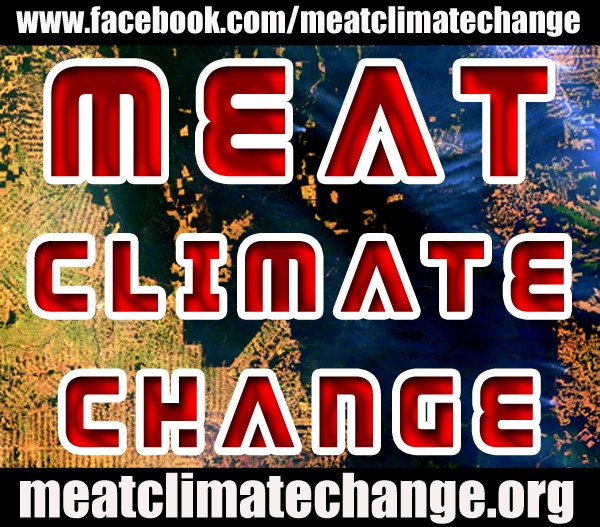The WHO International Agency for Research on Cancer (IARC) committee's recent classification of meat as cancer causing is not news. And neither are warnings about global warming and extreme weather events. In our machismo cultures, warnings are viewed as an obstacle to circumvent, and they often result in reinforcing negative behaviors. Morality, philosophy and pleasure are conflated and a "if feels good, it must be right" mentality prevails, despite of evidence to the contrary.
In 2002, the American Cancer Society (ACS) reported that diets might be responsible for more than one-third of all cancer deaths in the US. The ACS suggested people should limit their consumption of processed and red meats since diets low in both are associated with reduced risks of various types of cancer. Remarkably, in 1965, 50 years ago, scientists warned the US president about carbon pollution and global warming. And since 1995, climate scientists continue to issue annual warnings in 21 COP meetings.
However, both governments and people ignore scientific warnings and continue their lives as before without so much as a pause. Many argue that the evidence of meat's harm and climate change are overstated. Within 24 hours of the IARC press release, there was an intense social media blitz with outraged comments from bacon and meat lovers. This emotional, reactive response illustrate the problems with using logic for bringing about social change in machismo cultures.
For example, a 41-year-old man, who eats red meat six times a week, argued that European countries have a meat-eating culture. "We have been eating red meat for ages, this is not going to stop us." People grow up eating meat and this family tradition is one reason why giving up meat is unthinkable for many carnivores. When individuals ask, "what's for dinner?" they are usually referring to the meat and other dishes are viewed as just accompany it.
Eating meat is part of individual identity and considered essential to one's freedom in carnist culture. Even Bernard Stewart, chief scientists and chair of the IARC report, admits "I too like ham and salami and bacon. I also like a steak occasionally."
As comfort foods, individuals are even more reluctant to give up meat when times are hard. Meat has status, especially the expensive prime cuts of some animals. Steak is all about excess and opulence, but many also eat it daily or several times a week as a routine.
Americans are eating more processed meats today than they were a dozen years ago. In 1971, Americans ate an average of almost 150 pounds of red meat (beef, veal, pork and lamb) per person per year. In 2014, it was 102 pounds per person. In the 1950s, Americans ate an average of 16 pounds of chicken per person per year. In 1965, it was 37 pounds. In 2014, it was 85 pounds. Americans eat about 200 pounds per person of total meat yearly today. Nearly a quarter of the total meat Americans eat today is processed.
Having an enlarged carbon footprint is also part of family tradition and habit. Post-war generations grew up accustomed to a rapidly expanding economy and increasing personal wealth. The "Me Generation" burned a lot of cheap fossil fuels, and filled the atmosphere with heat-trapping gases with their wanton over-consumption. Boomers inspired their "Gen X" children to similarly use up a lot of resources without bothering to preserve much for "Millennials," or the generations to come.
Parents are still doing little to avert catastrophic climate change or to help their children adapt to a warmer world. "Living large," and celebration of excess, are the order of the day. For example, food waste associated with Halloween in the US alone is so huge, it causes global warming, and most of the 1.3 billion pounds of pumpkins produced end up in the trash.
The average US household carbon footprint is about 50 tons CO2e per year, about 5 times greater than the global average of 10 tons CO2e. The single largest source of emissions is driving and gasoline use, followed by housing, foods, goods, and services. The average American household carbon footprint is increasing with gas-guzzling SUVs more popular than ever.
In a 2014 UK study, dietary greenhouse gas footprints estimated per day were: 7.19 (k CO2e) for high meat-eaters, 5.63 for medium meat-eaters, 4.67 for low meat-eaters, 3.91 for fish-eaters, 3.81 for vegetarians, and 2.89 for vegans. After two decades of massive public awareness and outreach campaigns, the number of declared vegetarians remains stable and small - only 5 percent, with 2 percent calling themselves vegans.
Turning around machismo, post-war, consumerist, habitual cultures may not be possible. Since all logic seems to fail, we should plan instead for the inevitable consequences of business-as-usual over-consumption. Changes in diet and footprints will have to occur when there are no more excesses to be had. And, those changes may happen much sooner that we expect.






